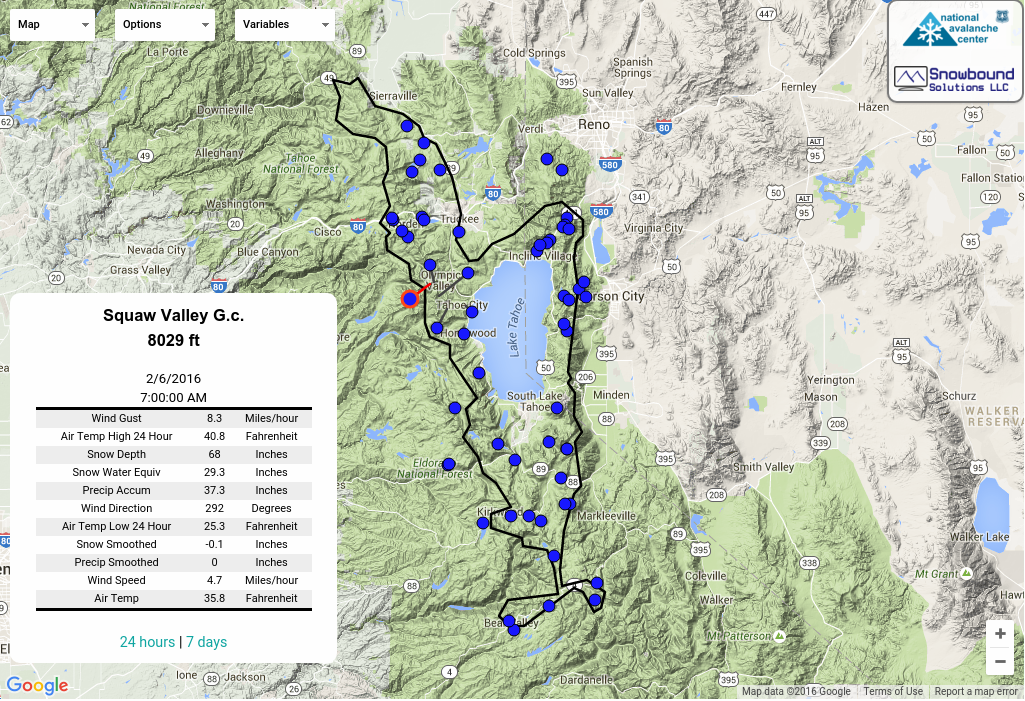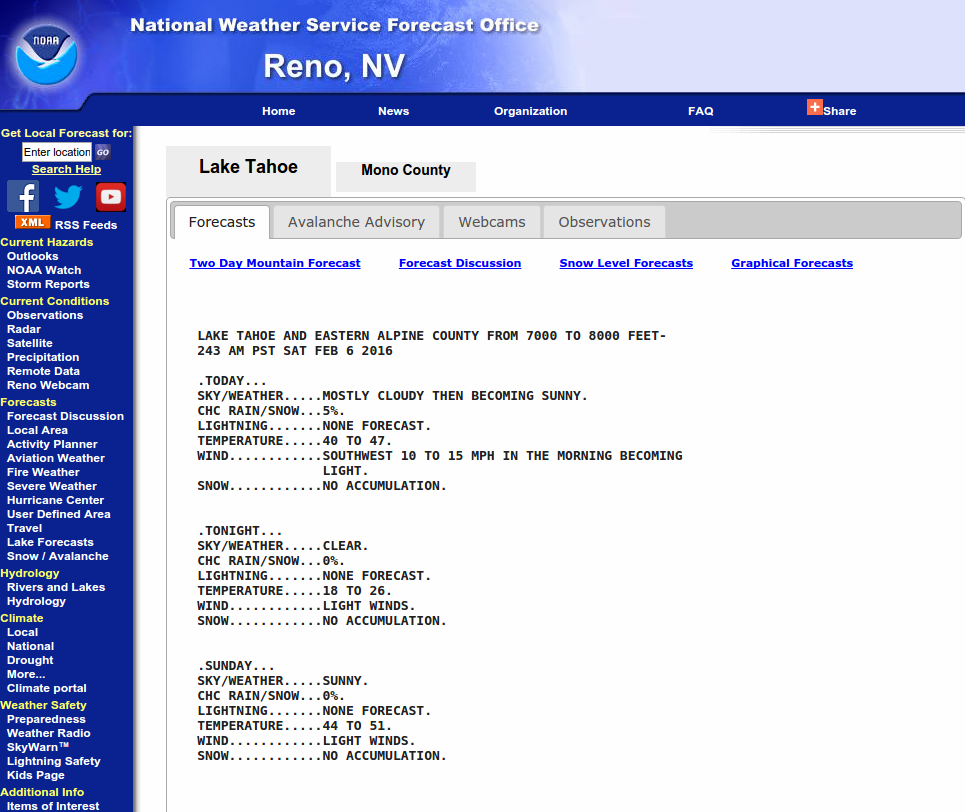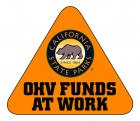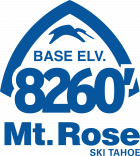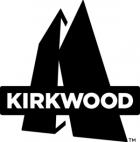
This Avalanche Advisory was published on February 28, 2010:

|
February 28, 2010 at 7:52 am |
|
Avalanche danger is LOW with pockets of MODERATE danger at all elevations, on all aspects, on slopes 35 degrees and steeper. This is due to lingering new and old snow instabilities on mid and high elevation NW-N-NE aspects and warming instability involving the new snow at all elevations on E-SE-S-SW-W aspects and mid to lower elevation NW-N-NE aspects. |
|
|
|
Forecast Discussion:
The last of the significant could cover associated with the past storm system is exiting the region is morning. Sunny skies, near to above freezing air temperatures, and light winds are expected for today. A few snow showers occurred yesterday across the forecast area bringing an additional trace to 2 inches of new snow in the past 24 hours. Ridgetop winds shifted to the NE overnight, but were strong enough to move snow for only a very short period of time. High pressure is expected to last through late Monday before the next storm system moves through the region.
Observations made yesterday around the forecast area showed varying degrees of snowpack instability. Three skier/snowboarder triggered avalanches with a crown height around 2' occurred on Becker Peak (Echo Summit area) at 8,300' on NW-N-NE aspects in near treeline and above treeline terrain that was steeper than 35 degrees. Two of the avalanches involved new snow only with the third avalanche stepping down into the older February 19 - 24 snow layers (photos, more info). On Pickett Peak (Luther Pass area) evidence of two most likely natural avalanches with a crown height around 2 ' and measuring 150' wide were observed in below treeline terrain on a N aspect at 7,500' yesterday afternoon (more info). On Silver Peak (Pole Creek area) less instability was observed with weak cornices but minimal slab propagation near treeline on a N aspect at 7,980' and minimal additional evidence of instability in the area (photo, pit profile, more info). Above Donner Pass and on Mt. Judah (Donner Summit area) numerous small skier/snowboarder triggered point release and slab avalanches with crown heights less than 1' occurred below 7,500' in near treeline and below treeline terrain on steep northerly aspects. Above 7,800, minimal evidence of instability was observed in this area (photos, pit profile, more info). On Incline Lake Peak (Mount Rose area), a small skier triggered point release avalanche occurred during the afternoon hours under warming conditions on an E aspect at 8,750' in a large open sun exposed area below treeline. This avalanche failed a few inches deep within the storm snow, measuring 15' wide and running 115' down slope (photos, more info).
Avalanche Concern #1:
Lingering pockets of storm snow instability are expected to remain in a variety of areas, mainly near treeline and above treeline on NW-N-NE aspects. Continued failure within the recent storm snow with possible step down into the Feb 19-24 old snow layers fuels continued concern for slab avalanches that are large enough to bury or injure a person.
Avalanche Concern #2:
With increasing solar radiation this time of year, warming instability of the recent storm snow becomes an increasing reality. This will mainly occur below 10,000' on E-SE-S-SW-W aspects and on mid to lower elevation NW-N-NE aspects. Large open areas on E-SE-S aspects that did not receive significant sun exposure yesterday will be the most suspect today.
The bottom line:
Avalanche danger is LOW with pockets of MODERATE danger at all elevations, on all aspects, on slopes 35 degrees and steeper. This is due to lingering new and old snow instabilities on mid and high elevation NW-N-NE aspects and warming instability involving the new snow at all elevations on E-SE-S-SW-W aspects and mid to lower elevation NW-N-NE aspects.
Weather Observations from along the Sierra Crest between 8200 ft and 8800 ft:
| 0600 temperature: | 24 to 26 deg. F. |
| Max. temperature in the last 24 hours: | 31 to 33 deg. F. |
| Average wind direction during the last 24 hours: | Southwest shifting to northeast |
| Average wind speed during the last 24 hours: | 15 mph |
| Maximum wind gust in the last 24 hours: | 40 mph |
| New snowfall in the last 24 hours: | trace to 2 inches |
| Total snow depth: | 85 to 120 inches |
Two-Day Mountain Weather Forecast - Produced in partnership with the Reno NWS
For 7000-8000 ft: |
|||
| Sunday: | Sunday Night: | Monday: | |
| Weather: | Sunny skies. | Clear skies. | Partly cloudy skies in the morning, becoming mostly cloudy in the afternoon. |
| Temperatures: | 30 to 36 deg. F. | 30 to 35 deg. F. | 38 to 45 deg. F. |
| Wind direction: | E | SE | S |
| Wind speed: | Up to 10 mph. | Up to 10 mph. | Up to 15 mph. |
| Expected snowfall: | O in. | O in. | O in. |
For 8000-9000 ft: |
|||
| Sunday: | Sunday Night: | Monday: | |
| Weather: | Sunny skies. | Clear skies. | Partly cloudy skies in the morning, becoming mostly cloudy in the afternoon. |
| Temperatures: | 28 to 35 deg. F. | 30 to 35 deg. F. | 35 to 42 deg. F. |
| Wind direction: | E | SE | S |
| Wind speed: | Up to 10 mph. | Up to 10 mph. | 10 to 20 mph. |
| Expected snowfall: | O in. | O in. | O in. |

